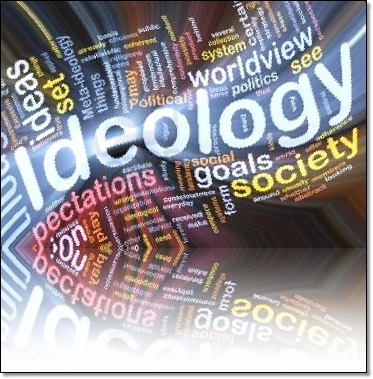Healthy Political Ideology Needed in Africa
 |
With the return to democracy in many of the African countries, one would have expected the termination of these crimes against African people. Unfortunately, however, in some of the African countries, these crimes against the African people are still continuing, committed, sometimes, by indisciplined government troops or by criminal gangs claiming to be freedom fighters. Fortunately, there is peace and quiet in the vast majority of African countries. Out of the 53 African countries that are members of the African Union, in the last few years, there has been civil wars and terrorism in about 10 of them. The other 43 have been peaceful.
Nevertheless, it is important that even the 10 should be assisted to end violence and terrorism. One root cause of this violence is the pseudo ─ ideology of, opportunistically, exploiting identity in the form of religious or tribal sectarianism, in order to gain or retain political power to the exclusion of the legitimate interests of the affected African people in the form of the production and exchange of the goods and services for their mutual prosperity
It is not correct to continue dealing with the adverse and tragic consequences of this pseudo ─ ideology in the form of massacres, massive displacement of people from their homes, loss of property and loss of development time, without condemning and banishing this root cause.
The pseudo ─ ideology inebriates States so much that they cannot create capable State institutions such as the army and other State pillars. The consequence is that the State cannot handle the smallest of security challenges and has no alternative but to take recourse to the peace keeping operations of the UN.
The UN peace operations have got their own problems which I do not want to go into here. The consequence of all this is that the African people in the affected areas undergo a lot of privations for prolonged periods, not to mention, the resultant loss of development time.
This is not good in my opinion. Our elders; Mzee Mwalimu Nyerere, Mzee Kenneth Kaunda, Sekou Toure, Samora Machel, Agostinho Neto, Houari Bommeddiene and others, were able to handle the contemporary problems of their time in much more challenging circumstances. Why and how can we fail in our own circumstances to handle challenges to peace and security in Africa today?
You can have a difficult political ─ security situation in a country. If, however, there is an ideologically clear headed political organization, there will be hope for that country. It will be just a matter of time for that organization to grow and gain the upper hand in eclipsing the negative forces that may be operating in that country.
Mau-Tse-Tung, once said that even if you put your own fertilized eggs (agomuyaga or amasumba) in an incubator for all the necessary days, those eggs will never hatch into chicks. Therefore, as we grapple with the respective political ─ security situations in our continent, we should bear this logic in mind. It is healthy to have political groups with health political ideas, either in government or the opposition.
A healthy political idea will have a following and eventually, that following will coalesce into structures. The following and structures will be crucial even when it comes to create structures such as the army, if that political group gains political power in the whole country. As we search for peace in the respective areas in Africa, it is good that we bear these dynamics in mind.
By HE Yoweri K. Museveni
President of the Republic of Uganda
